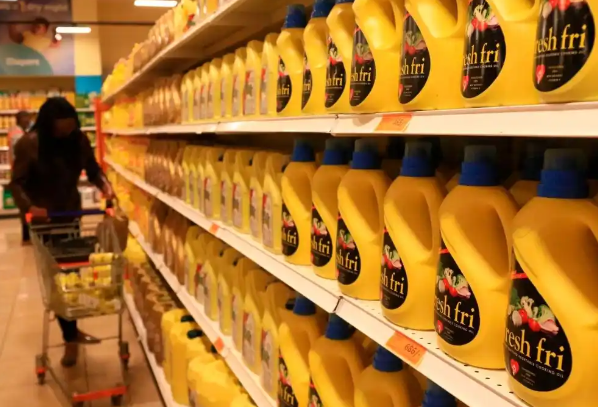The Kenya Bureau of Standards (KEBS) is currently facing a major corruption scandal that has raised serious health concerns.
Out of 73 shipments of cooking oil tested by KEBS, 44 shipments failed to meet the required Vitamin A levels but were still cleared and released into the market.
This revelation has triggered public outrage, with many wondering how these substandard products were approved, who authorized their release, and why KEBS has only recently come forward.
This issue echoes a similar controversy in 2023, when KEBS ordered the recall of several cooking oil brands, including those from well-known manufacturers like Bidco Africa, Pwani Oil, Kapa Oil Refineries, and Menengai Oil.
The products were found to be non-compliant with the KS EAS 769: 2019 standard for fortified edible oils and fats, although the precise violations were not disclosed in detail.
Brands such as Fresh Fri, Bahari Fry, Gold and Pure Olive Gold, Rina, and Salit were affected by this recall.
The current scandal adds a new layer of concern, as it seems likely that the same manufacturers may be involved.
This raises important questions about the accountability and regulatory oversight within the industry.
Consumers are rightfully alarmed about the potential health risks posed by the continuous sale of substandard oils.
The lack of transparency in the process, especially around who cleared these shipments, remains troubling.
Oil degradation is a major health concern.
When cooking oils are exposed to heat and oxygen, they can break down, producing harmful by-products such as free fatty acids, polymers, and cyclic compounds.
Prolonged consumption of oils with high levels of these by-products increases the risk of health issues, including heart disease and elevated cholesterol levels.
Thus, the fact that substandard oils made their way to the market could have lasting consequences for public health.
KEBS’ handling of this situation raises questions about regulatory failures and the influence of corruption in the clearance of such products.
The role of importers and the entities behind these shipments remains unclear, fueling further speculation.
For now, it is advisable for consumers to avoid the affected brands until the situation is fully resolved and more information is made available.
This ongoing scandal poses the need for more stringent oversight and accountability within Kenya’s food safety system, especially in industries as critical as edible oils.





















Add Comment